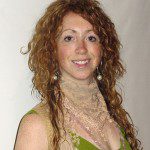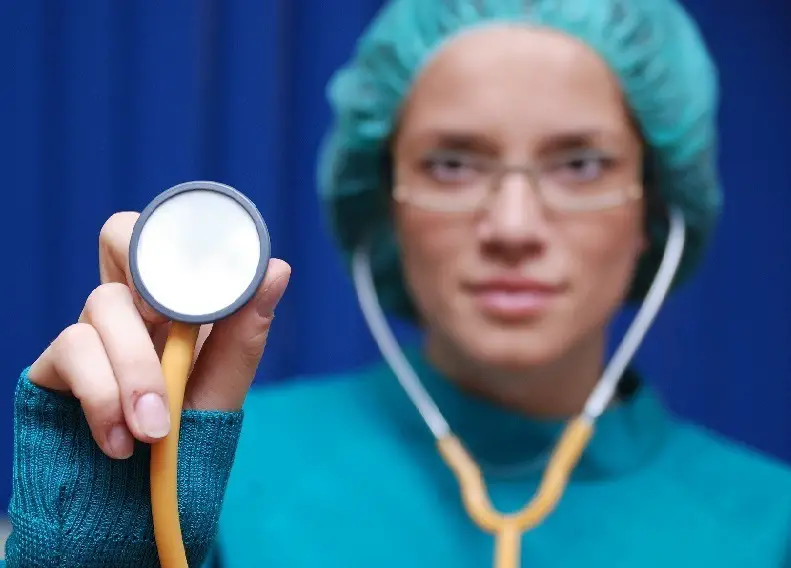By Marie Be
Guest Writer for Wake Up World
The advancement of modern science and technology has allowed for ways of studying the incredibly small and the commensurably big. Technical capabilities for research make possibilities endless, but private funding means that our great scientists work in silos, answering to competitive economic interests. Sadly, the system as a whole has been forgotten.
Modern medicine has roots in the Hippocratic, Newtonian and Cartesian school of thought, also referred to as reductionism. Though this way of relating to the world, philosophers and scientists defined the universe as a great machine; a complex system that is nothing but the sum of its parts, an account of which can be reduced to accounts of its individual constituents (1). Likewise, early physicians began to define the human body as a machine, studying it by breaking it down into independent parts, losing touch with the study of the whole.
According to this paradigm, the body could be analyzed, catalogued, adjusted, and repaired in parts, as required — just like any other machine. Disease was no longer viewed as a body state (much less an energetic state) but merely as a set of symptoms. From this foundation, modern medicine has become the observation, classification and management of individual symptoms, without seeking to understand the body as an holistic entity (2). Meanwhile, rates of sickness, disease and over-medication are steadily increasing.
Consider the following…
You have clogged arteries, which causes your blood pressure to rise. Your doctor prescribes blood pressure medication to eliminate the symptom of high blood pressure – not the initial problem, which is clogged and hardened arteries.
To reduce blood pressure, doctors have four classes of medication in their arsenal:
- Diuretics, which reduce pressure by dehydrating your body. Unfortunately, dehydration affects mind and body, causing imbalance and ageing. Side effects can include dizziness, weakness, an increased risk of strokes, and impotence. But do not worry, there are medications to alleviate these side effects.
- Calcium channel blockers, which increased risk of heart attack by 60%.
- Beta blockers, which work by weakening the heart so it won’t pump as strongly, thereby reducing blood pressure.
- ACE inhibitors, which relax and widen the arteries. They can cause severe allergic reactions, can be deadly to fetuses and children who are breastfeeding, and can cause severe kidney damage.
But remember, these drugs only treat the symptom, not the cause – clogged arteries. Eventually, your arteries continue to clog to the point where even the medication no longer helps. At that point, your doctor is then forced to perform a coronary bypass or angioplasty to unclog heart arteries. Again, the surgery merely addresses the symptoms, not the problem.
After the surgery and the cocktail of drugs involved, your arteries supplying blood to your heart are clear. But what about other arteries such as the ones supplying blood to your brain? In fact, the odds of having a stroke after heart surgery are dramatically increased. To reduce stroke odds, your doctor prescribes you another medication, which inhibits clotting by thinning your blood. Of course, this new drug has its own set of side-effects, so you need extra medication to cover these, too. And don’t forget that you are still on all of the previous blood-pressure drugs and symptom-relieving drugs that your doctor previously prescribed.
Although this is just one example of modern medicine making the sick, sicker, today this spiralling cycle of pharmaceutical over-medication is all too common. The average person 65 years or older in the United States takes an average of 15+ medications a day, each and every day of their lives. And only the first 1 or 2 drugs are actually prescribed to deal with the original symptoms. The other 13+ drugs are all required to deal with the negative side effects of the original two, plus the effects from the interactions of all the other drugs they are taking.
The really sad fact is: in over 95% of all cases, the original problem could have been resolved naturally — with no side effects. (3)
Health as a way of life
There are no “magic bullets” when it comes to achieving good health. Good health is the result of making right decisions, day after beautiful day. (4)
The human body is designed to maintain good health, and properly supported, one way it does this is by constantly gathering and removing toxins from its cells and organs. With the unprecedented levels of toxicity we are exposed to each day, helping the body’s natural detox processes should be more than an occasional cleansing diet – it should be a way of life.
Focus on cleansing and detoxifying your body, inside and outside. Get rid of the toxins that are hanging around in your intestines, clogging your arteries, wearing out your organs.
Learn to avoid toxicity in everything possible – from food, beauty products, air, water, household cleaners, emotions, and thoughts.
Finally, nourish your body with good, clean, whole food and give your body nutrient-dense foods, hydration, exercise, positive thoughts, actions, and activities.
For more on natural detoxification and maintaining holistic good health, check out EarthSun.
Resources:
(1) Reductionism. Interdisciplinary Encyclopedia of Religion and Science.
(2) Jon Barron, 2002, A Step-by-Step Guide to Optimum Health and Relief from Catastrophic Illness.
(3) Ibid.
(4) Ibid.
Previous articles by Marie:
- Preventative Detox: 6 Foods to Avoid for a Clean Healthy Body
- BURN: Health Impacts of Sunscreen Found to be Worse Than UV Damage!
- Natural Detox : Flush Your Toxins Down the Drain
- Easy Home Recipe: Skin and Body Detox Cream
- Skin Science – Debunking Cosmetic Industry Propaganda
- 3 Years After Fukushima: Behind the Skewed Data and Vested Interests
- Support Your Cellular Health and Slow the Aging Process
- Transdermal Detox – Taking Your Health Supplements Through Your SKIN!
- Natural Detox : Detoxing as a Way of Life
About the author:
 Marie Be’s inspiration comes from her mom who always challenged common assumptions and sought to understand for herself the major issues concerning her family and the choices she made on their behalf. She raised Marie and her brother in a rural environment, feeding them the best organic foods, and focused on building strong immune systems in her children through the use of natural plants, herbs and minerals.
Marie Be’s inspiration comes from her mom who always challenged common assumptions and sought to understand for herself the major issues concerning her family and the choices she made on their behalf. She raised Marie and her brother in a rural environment, feeding them the best organic foods, and focused on building strong immune systems in her children through the use of natural plants, herbs and minerals.
As a fiery teenager, Marie travelled the world in search of purpose and dreamed of positively influencing our society. While earning her first two degrees, in architecture and sustainable development, she worked for Greenpeace and many other organizations of change. Her experience taught her that change cannot be imposed; she now aims at inspiring individuals through education and awareness.
Marie moved to Vancouver to undertake a Masters in Regenerative Sustainability under the supervision of a Nobel Peace Prize recipient. Teaching workshops on well-being, she started observing a widespread desire in our society for both physical and environmental health and sustainability. Feeling the winds of change, Marie founded EarthSun. By tuning into nature as our source of life, and acquiring knowledge of ancient herbal traditions as well as new technologies, Marie believes it is possible to use nature’s intelligence to create simple and effective health products.
Check out EarthSun for more information, or connect with Marie on Google +, Facebook and Twitter.

If you've ever found value in our articles, we'd greatly appreciate your support by purchasing Mindful Meditation Techniques for Kids - A Practical Guide for Adults to Empower Kids with the Gift of Inner Peace and Resilience for Life.
In the spirit of mindfulness, we encourage you to choose the paperback version. Delve into its pages away from screen glare and notifications, allowing yourself to fully immerse in the transformative practices within. The physical book enriches the learning process and serves as a tangible commitment to mindfulness, easily shared among family and friends.
Over the past few years, Wake Up World has faced significant online censorship, impacting our financial ability to stay online. Instead of soliciting donations, we're exploring win-win solutions with our readers to remain financially viable. Moving into book publishing, we hope to secure ongoing funds to continue our mission. With over 8,500 articles published in the past 13 years, we are committed to keeping our content free and accessible to everyone, without resorting to a paywall.







